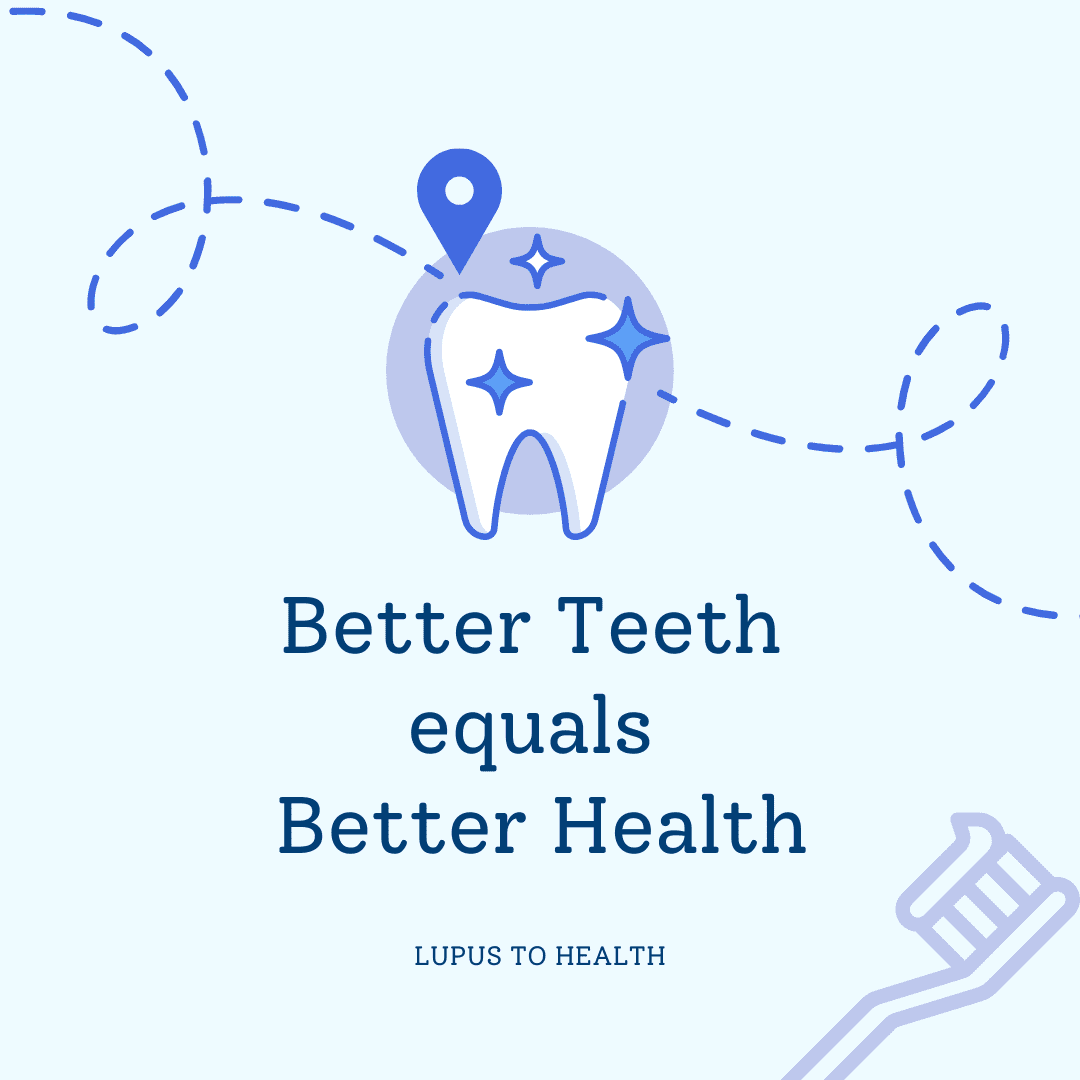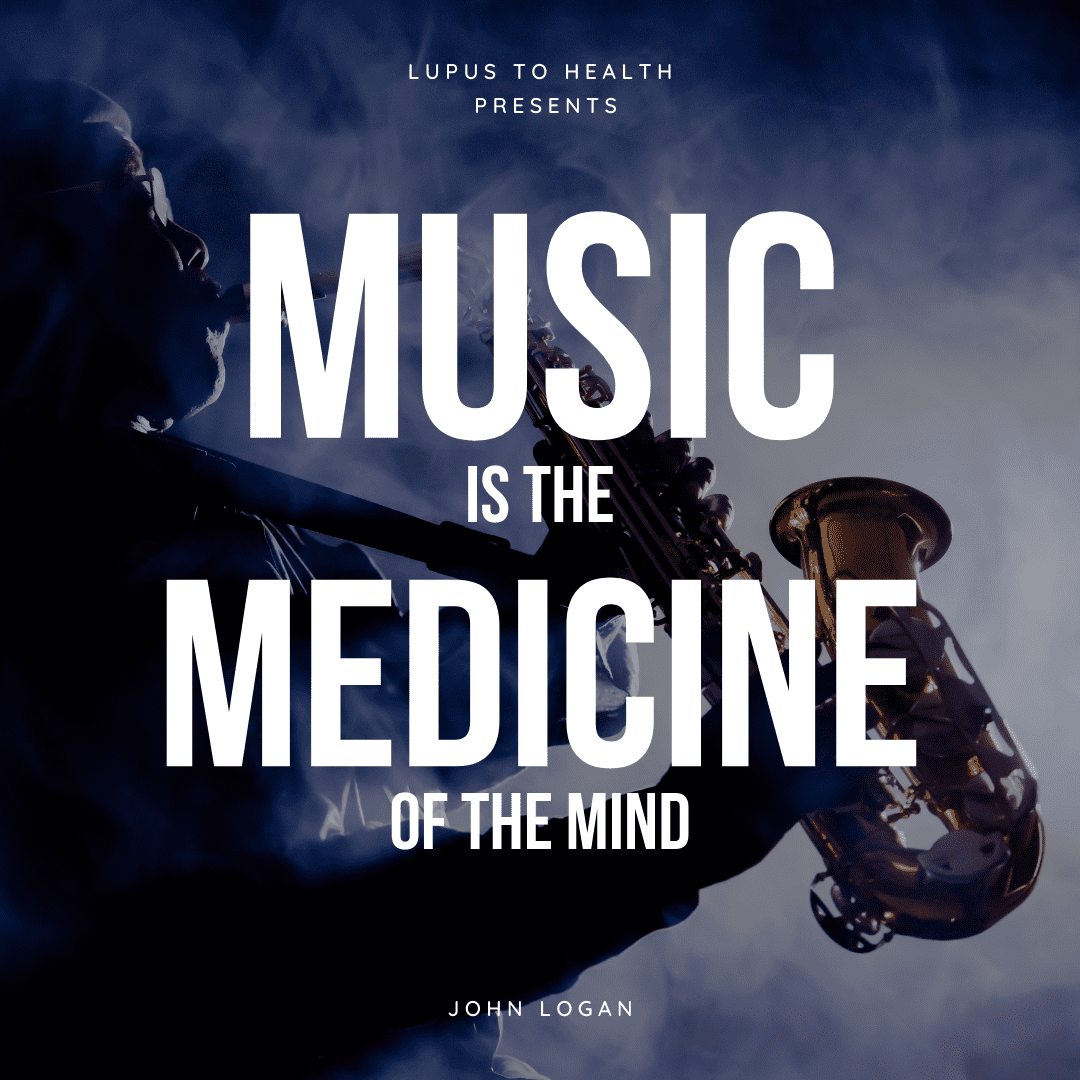The link between heart health and systemic lupus is a deadly one. So severe in fact that patients as young as 5 have died from a heart attack! [1]
The risk of having a heart attack is nine times greater among those with systemic lupus.
50-times greater if you compare women with lupus to healthy women. [2][3]
More than 50% of lupus patients will develop heart or blood vessel (“cardiac”) issues. Meaning a much more chance of dying earlier than nature intended [4].
So, it’s no surprise that “cardiovascular disease” is the main cause of death for people with systemic lupus [5].
– Click here to learn more about the link between heart disease and lupus –
If these scary stats don’t highlight why your heart health is a serious subject, a heart attack might! But by then it may be too late.
On top of this, heart health and mental ability go in twine. Meaning those who have a higher chance of cardiovascular disease, are also more likely for things such as Alzheimer’s disease. Implying that heart health is the key to mental health [6][7].
In this article, we will cover the top 7 daily habits for a healthy heart.
So, without furth ado…
7 Healthy Habits for a Healthy Heart

Habit #1: Brush those Teeth (more)!
On the assumption, you brush your teeth once a day. You need to hold your oral hygiene to higher importance.
You see…
One research had 247,696 people who were all over the age of 40. They did a health screening at the start and end of this near 10-year study. Ending around 2018. During this time, there were 14,893 major heart issues. Things such as the heart dying suddenly, or having a heart attack, stroke and heart failure. [8]
The researchers connected the dots from heart problems to dental issues. The risk rose when a person had gum disease, tooth decay, or missing teeth. [8] What’s more, other studies have similar results. [9][10][11][12]
Likewise, another decade-long study tightens the tie of dental care to irregular heart rate (“atrial fibrillation”) and heart failure. [13] Again, this was using subjects over the age of 40. 161,286 people, in fact.
How oral hygiene helps the heart?
The belief is that poor oral hygiene leads to bacteria in the blood, causing inflammation in the body. Something that you don’t need or want more of!
The theory is that brushing your teeth reduces the bacteria within the pocket between your teeth and gums. Thereby preventing the bacteria from entering your bloodstream via “translocation”.
Keep those teeth and that heart clean by:
- Brushing those teeth a few times a day. Brushing your teeth 3 times or more a day seems to be the sweet spot. It is said to offer a 10% lower risk of irregular heart rate. As well as a 12% reduction in heart failure. [13]
Still, even brushing your teeth one more time a day reduces your odds by 9%. That’s for all cardiovascular issues. [8]
- Get flossing. If the bacteria between the teeth theory rings true. It’s vital to not only brush in-between the teeth but to floss also. [9]
- Visit that dentist: Regular dental visits for a professional clean – once a year or more – may reduce cardiovascular risk by 14%. [8]

Habit #2: Sleep for 7-8 hours a night:
We know that sleeping well is important for our health. But do you understand the effect it has on the heart?
For instance, poor sleep leads you to a worse diet. It encourages you to eat too much food and calories. Either by stimulating hunger signals or suppressing signals of fullness. [14]
Yet, it can affect your heart health. For better or worse.
Sleeping less than 6 hours a night can increase your odds of heart disease by 48% to 54%. [15][16] But what’s more, the same effect can occur when you sleep too much also. Science suggests that getting more than 8 hours of shut-eye every night will increase your odds by 39%. [16]
This is on top of a 15% greater chance of developing or dying of a stroke. [15] For both, not sleeping enough and sleeping too much.
Likewise, those who sleep less than 6 hours a night, have a 20% more chance of having a heart attack. Yet, those who sleep more than 9 hours are 34% more likely. [17] Not what you need when you’re already 9 times more at risk than the average person!
Remember this is the effect it has on the average Joe and Joan. It could be the straw that breaks the camel’s back for those of us with lupus.
We know that having lupus gives you a high genetic risk of heart disorders. When you mix this with a healthy sleep pattern, you get a 2.1-fold greater risk of heart disease. As well as a 1.3-fold higher chance of stroke. This is against someone with low genetic risk and a good sleep routine.
A low genetic risk person with an unhealthy sleep pattern will find themselves with a 1.7-fold more chance of heart disease. Alongside a 1.6-fold greater risk of a stroke. [18]
How poor sleep equals a poor heart?
Although far from final. The thinking is that poor sleep impacts the “autonomic nervous system”. The control system is in charge of regulating bodily functions like heart rate and blood pressure.
Another possible explanation for the link between sleep disruptions and atrial fibrillation is that frequent waking puts extra stress on the heart’s chambers.
Whatever the case, thickening of artery walls can occur due to not having enough or having too much sleep. To me and you, that’s sleeping more or less than 7-8 hours a night. [16]
What your new sleeping routine looks like:
The aim is to get 7 to 8 hours of quality sleep every night.
Poor sleep comes from having trouble falling asleep, staying asleep, and feeling sleepy during the day. Some examples to end these include:
- Bathing/Showering 90-mins before bed. Warm baths and showers stimulate your body’s “thermoregulatory system”. Increasing the amount of blood from the internal core of the body to the hands and feet. Resulting in a lower body temperature over time.
Science suggests 90 minutes is the time it takes to reach the optimal temperature. This aids our natural circadian process, which increases a person’s chance of falling asleep quicker. As well as experiencing better quality sleep. [19]
- Eat Omega-3. Higher levels of Omega-3 “DHA” – a group of long-chain fatty acids – help you get a better night’s sleep. For both children and adults. [20][21]
You can achieve this by eating more fatty fish. As well as taking “EPA & DHA – Omega 3” supplements.
- Find meaning in life. People who feel their lives have meaning seem to have better sleep than those who don’t. [22] The same applies to those who work and enjoy what they do. [23]

Habit #3: Practice Yoga
Yoga is an ancient holistic approach toward a healthy mind and body.
It addresses physical, mental, and spiritual well-being through “psycho-physical” practices. Meaning that this ‘mind-body approach’ can include:
- Body movements (“Asana”)
- Breathing exercises (“Pranayama”)
- Meditation
- Relaxation practices
Practitioners claim this holistic ancient method has many mental and physical benefits. As is science now. [24]
For instance, Yoga can improve sleep quality [25], relieve depression [26], and reduce stress. [27]
Yoga is a useful tool for heart health. [28] For example, yoga can reduce blood pressure. [29] As well as “atrial fibrillation” symptomatic episodes. [30]
Yoga may reduce inflammation caused by both stress and aging. Helping to lower the amount of the compound, “cytokine interleukin-6 (IL-6)”. [31] This is an inflammatory protein that’s a good predictor of heart disease. [32] It may also worsen the condition of those with heart failure. [33]
What’s more, if you have lupus you already have high levels of these pro-inflammatory proteins. [34] Offering us an extra incentive.
How Yoga could be the heart’s Yoda?
Other than the above-mentioned effects. Scientists suggest that yoga may improve heart health indirectly.
In other words, yoga doesn’t build a stronger heart. It strengthens the nervous system, which then creates a healthier heart rate – and so a healthier heart. [35]
A research team points the finger towards the strengthening of the “parasympathetic control.” [36] This is the part of the nervous system that comes from the brain and hip (“sacral plexus).
It plays a role in digesting food, but also many protective reflexes like: [37]
- Limiting heat loss
- Reducing how much energy used
- Slowing the heart rate
How to add Yoga to your life?
Today, you can start Yoga in the comfort of your own home. A quick online search will bring up many ‘Yoga for beginners’ websites, books, and videos.
YouTube is a good place to start.
Make sure you begin with your current health level in mind.
For instance, if you have high blood pressure, avoid standing up from floor exercises too quick. Also, stay away from poses where your head is lower than the heart. i.e., steer clear of headstand poses.
Likewise, people with “osteopenia” or “osteoporosis” have a higher risk of compression fractures or deformities. So, avoid excessive bending poses if this is you. [38]
Contact your consultant beforehand with any concerns that you may have. It is best to be safe.

Habit #4: Walk more
As it stands, people of the UK and USA do not walk enough. 55% of responders of a survey in these nations, said they do less than 30 minutes of brisk walking on a typical day. [39]
Yet, 150-minutes of walking a week is enough to improve blood pressure. So, walking 30-minutes a day, 5 days per week. As seen in a small 5-week study. [40]
A six-year study suggests that walking can reduce your risk of high blood pressure by 7.2%. Alongside making you 9.3% less likely of developing coronary heart disease. [41]
Walking speed also plays an important role.
It appears that slow walkers might be on a dark path. For instance, slow middle-aged walkers are around twice as likely to have a heart-related death. In comparison to brisk walkers of the same age. [42]
Likewise, walking pace may predict the risk for older adults undergoing heart surgery. With slow walkers having the bleakest prospects. For every extra second it takes to cover one metre, comes an extra 11% chance of death. [43]
Similar results show in those with chronic kidney disease. For every extra second it takes to cover a metre, there is an 8% higher risk for death. [44] Something worth knowing if you have Lupus Nephritis.
How walking helps the heart
Growing old without exercising can lead to a stiffening of the heart’s muscle. Of most concern is the muscle of the heart’s left ventricle. This is the chamber that pumps oxygen-rich blood around the body.
When this muscle stiffens, you get high pressure and the heart chamber doesn’t work as well as it should. In its most severe form, blood can back up into the lungs. That’s when heart failure develops.
But, you can reverse this by doing exercises such as walking. This is according to a two-year study. This includes an 18% rise in the amount of oxygen a person can take in during exercise. As well as a 25% improvement of the left ventricular muscle of the heart. [45]
What’s more, certain muscles improve circulation. The best example of this is the calf muscle. With every footstep you take when you walk, the calf muscle contracts.
Each time the calf muscle flexes it forces about 70% of the blood in the legs back toward the heart. When the calf muscle relaxes, the deeper veins in the legs fill with blood. This process has led to some calling the calf, the “second heart.”
Tips for your new walking routine
- Don’t do it alone. Science suggests that joining or creating a walking group is the best step towards sustaining a walking routine. [46] Or, opt for a non-human option by walking a dog. Dog walkers appear to walk more than other or none pet owners. [47]
– ‘Walking for Health’ scheme is a perfect place to start if you live in England –
- Start from Home. People benefit more from home-based walking trips. So, start your new walking regime within, to, and from your local neighbourhood. [48]
- Walk to work (if possible). For some, finding time to exercise is a task itself. The solution may be to walk to work. Plus, those who walk to work are less likely to have high blood pressure or diabetes. They are also more likely to be at a healthy weight. Which together, equals a reduced risk of developing cardiovascular disease. [49] Win, Win.

Habit #5: Listen to Joyful music
Listen to music that makes you feel good and brings you joy. It pulls the heartstrings in a good way. Making it a potential aid in preventing heart issues.
Listening to joyful music can cause the tissue in the inner lining of blood vessels to expand. This in turn increases blood flow and so, circulation. [50] This is good news.
Music also helps those living with heart disease. Music can lower blood pressure, heart rate, and levels of anxiety in heart patients. Reducing anxiety is important as the added stress may raise blood pressure. Which could then trigger complications in the long run. [51]
Likewise, music may be a treatment for those who have had a heart attack. This is according to a 7-year study.
It not only lowers anxiety in these individuals, but also relieves chest pain. This is helpful for those who experience chest pain after their heart attack (“post-infarction angina”). All you have to do is listen to soothing music for 30-minutes a day. [52]
Music was also seen to lower rates of certain heart conditions – post-heart attack: [53]
- 18% reduction in the rate of heart failure
- 23% lower rate of a later heart attack
- 20% lower rate of needing coronary artery bypass graft surgery
- 16% lower rate of cardiac death
How music helps the heartstrings
Stress, whether it’s from living with lupus or listening to stressful music, isn’t good for the heart. For instance, it can cause blood vessels to narrow. Thus, reducing blood flow and affecting circulation for the worse. [54] Creating high blood pressure.
Music may work by helping to counteract the body’s natural defence against stress… the “fight-or-flight” response.
Stress and anxiety rev up the “sympathetic nervous system”, which controls this response. In response, it raises heart rate and blood pressure. Putting extra strain on the cardiovascular system. Over time causing damage.
Imagine it as being equal to sitting in a neutral car with your foot flat on the accelerating pedal. Common sense tells us that doing that for a long-time will damage the engine.
Music benefits vascular health due to endorphins or endorphin-like compounds released from the brain when we hear the music we like. Which in turn reduces anxiety and relieves stress.
– Can Stress Cause Lupus? Click Here to Learn More –
What’s joyful music?
Music that a person enjoys is subjective.
For instance, one person may find a certain musical transition relaxing. While another individual could find it arousing or stressful. [55]
So, remember, there is no ‘ideal’ music for everybody. Choose music that makes you happy or relaxed. The goal is to increase those positive emotions!

Habit #6: Lift Weights
Weightlifting can strengthen the heart. Pun intended.
What’s more, you don’t need to become a gym rat either.
You can get heart-healthy benefits from lifting weights for less than an hour a week. Doing so may reduce the risk of a heart attack or stroke by 40%-70%. Regardless of whether you’re an avid cardio-head, or not. [56]
Less than an hour of weightlifting a week reduces your risk of developing “metabolic syndrome.” This is a condition that increases a person’s risk of heart disease, stroke, and diabetes. Again, this was free of aerobic exercise. [57]
How weightlifting strengthens the heart
Heart benefits from lifting weights may be a result of greater muscle mass.
In theory, more lean muscle mass means more places for blood to go. This equals less pressure on the arteries, which helps reduce the chances of heart-related problems. This could explain why more lean muscle mass appears to equal less risk of high blood pressure. [58]
As mentioned, a strong and active calf muscle is crucial for good circulation.
The same can be said about the foot and thigh. Both have a ‘pump-effect’ similar to the calf muscle. The foot ‘pump’ helps fill the lower leg veins. The thigh ‘pump’ provides general support to the veins and the calf ‘pump’. Together they play a big role in pushing blood back up the legs. Helping it to return to the lungs and heart.
Muscles to train in that hour
Training for less than an hour a week isn’t much time at all. So, with this in mind, what muscles top the list of what needs training?
Leg exercises should top your list for reasons spoken:
- Calf strength and ‘pump’ function improve with calf strength exercises. [59]
- Thigh size gives a glimpse of a person’s heart disease risk. Larger thighs mean less chance. [60]
What’s more, the stronger a person’s grip strength, the healthier their heart it seems. Both in terms of structure and function. A strong grip may mean your heart pumps more blood per heartbeat. Making it more efficient. [61]
Grip strength appears to be a good predictor of health for young people. [62] So, this rule of thumb may apply to young people as well as adults.

Habit #7: Be Grateful
Reflect on your present blessings, on which every man has many, not on your past misfortunes, of which all men have some.
—Charles Dickens
Being grateful is a common step in self-help books. As well as a central pillar in the world’s religions.
Grateful responses to life, we hear, can lead to peace of mind, physical health, and deeper, more satisfying personal relationships. But most of all, happiness, which can predict lower heart rate and blood pressure. [63][64][65]
In a 10-year study, being happy reduces your risk of developing heart disease. [66] What’s more, happiness helps those with heart problems also. Patients who rate themselves as happy were seen to have healthier heart rates. [67]
In a study involving those with heart failure that produces no symptoms. Gratitude in these patients was associated with: [68]
- Improved mood
- Better sleep
- More energy
- Lower levels of inflammatory biomarkers related to heart health
It seems that a more grateful heart is indeed a healthier heart.
Be grateful by keeping a gratitude journal
According to the Oxford dictionary, ‘gratitude’ is a feeling of being grateful and wanting to express your thanks.
There is no better way to do this than to write it down on a daily basis. In other words, to keep a gratitude journal.
Subjects in one study kept gratitude journals for eight weeks. This led to lower circulating levels of many important inflammatory biomarkers. As well as an increase in heart rate variability while they wrote.
Improved heart rate variability is a measure of reduced cardiac risk. This shows that gratitude journaling is an easy way to support heart health
Final Thoughts: A Heart-Healthy Day
Heart problems are not far from any person with systemic lupus. So, it’s crucial to make every day as heart-healthy as possible.
Based on these Top 7 daily habits for a healthy heart, a perfect day will look a little like this:
- Wake up from a solid 8-hour sleep.
- Write down 3-things you’re grateful for
- Morning yoga anyone?
- Brush teeth and floss after breakfast (while listening to smooth or joyful music?)
- Morning walk (or cycle) – maybe to work? (Again, joyful music is optional)
- Brush teeth midday (after lunch)
- Go to the gym and lift weights to strengthen legs and grip strength (not every day)
- Brush teeth and floss before taking a warm bath or shower
- Go to bed 90 mins later – limit or cut blue screen time here.
I would love to know your thoughts. Feel free to drop a comment below or contact me.
If you like this article, check out my other articles here. These may be of interest:
Pingback: How Can Lupus Affect Your Heart? - Lupus to Health